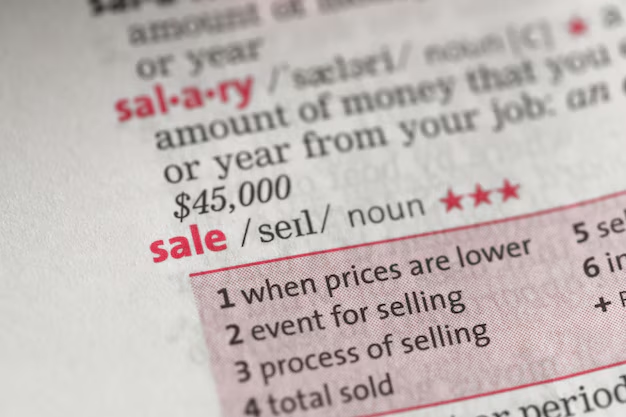Understanding the Sales Tax in Tennessee: What You Need to Know
Sales tax is one of those inevitable aspects of life when purchasing goods and services, and it can vary widely from state to state. For anyone living in or visiting Tennessee, understanding the nuances of the state’s sales tax is essential. Whether you're a business owner, consumer, or just passing through, knowing how sales tax works can help you make informed financial choices. Let's dive into everything you need to know about the sales tax in the Volunteer State.
What Is Tennessee’s Sales Tax Rate?
The primary sales tax rate in Tennessee is relatively high compared to other states in the U.S. Tennessee imposes a state sales tax rate of 7% on most goods and services. This base rate is uniform across the state, but it's just the starting point. Local governments can also levy their own sales taxes, which can add an additional percentage point to the total sales tax rate.
Local Add-ons and Variations
Depending on where you're shopping in Tennessee, you might encounter different rates due to local taxes. These local sales tax rates can range up to 2.75%, which means in some areas, the total sales tax rate can reach a maximum of 9.75%. For example, if you’re shopping in Nashville or Memphis, you might pay the top bracket of this range, combining both state and local taxes.
Key Takeaway:
- State Sales Tax: 7%
- Local Sales Tax: Up to 2.75%
- Maximum Total Sales Tax Rate: 9.75%
What Is Taxed?
In Tennessee, most tangible goods are subject to sales tax. This includes items like clothing, electronics, and household goods. However, not everything is taxed uniformly or at all.
Exemptions and Reductions
Certain goods and services in Tennessee receive exemptions or are taxed at reduced rates:
- Groceries: Groceries are taxed at a reduced rate of 4%, plus any applicable local taxes.
- Prescription Drugs: These are generally exempt from sales tax.
- Agricultural Products: Items like seeds and livestock feed often benefit from exemptions.
Understanding these differences can lead to significant savings, especially for families or businesses purchasing food in volume or specific exempt items.
How Is Sales Tax Computed?
The computation of sales tax in Tennessee is straightforward but requires attention to detail, especially when local taxes are involved. Here’s a simplified breakdown:
- Determine the Total Sales Tax Rate: Combine the state’s base rate with any local tax rate.
- Calculate Tax: Multiply the total price of the goods or services by the total sales tax rate.
- Add Tax to Purchase Price: The result is the total amount due, including sales tax.
Example Calculation
Imagine purchasing a TV for $1,000 in an area with a total sales tax rate of 9.75%.
- Calculate Sales Tax: $1,000 * 9.75% = $97.50
- Total Cost: $1,000 + $97.50 = $1,097.50
FAQs About Sales Tax in Tennessee
Are Digital Goods Taxed?
Yes, digital goods are subject to sales tax in Tennessee. This includes software, downloaded music, and e-books.
How Is Tax Collected?
Vendors in Tennessee are responsible for collecting sales tax on every taxable transaction and submitting it to the state. This applies to both physical stores and online businesses operating within the state.
What About Sales Tax Holidays?
Tennessee occasionally offers sales tax holidays, giving consumers a break on specific types of purchases, often around back-to-school times or during special event promotions. During these periods, certain items like clothing and school supplies may be exempt from sales tax.
Impacts of Sales Tax
Understanding how sales taxes impact consumer behavior and businesses is crucial for operating effectively in Tennessee.
Consumers
For consumers, Tennessee’s sales tax can affect purchasing power. High taxes can influence shopping habits, pushing consumers to seek out online deals or nearby states with lower rates for larger purchases.
Businesses
For businesses, accurately calculating, collecting, and remitting sales tax is a must. Mistakes can lead to penalties and interest charges, affecting long-term viability. It’s also vital for businesses to keep an eye on changing tax rules, especially with online sales playing an increasingly significant role.
Quick Reference: Tennessee Sales Tax Essentials
Here’s a quick guide to help you remember key points about sales tax in Tennessee:
- 📌 State Rate: 7%
- 📌 Max Local Rate: 2.75% leading to a total potential rate of 9.75%
- 📌 Exemptions/Reductions: Groceries (4%), Prescription Drugs (0%), Select Agricultural Goods
- 📌 Tax Holidays: Occur periodically—keep an eye out for announcements!
⚠️ Pro Tip: Always check the local jurisdiction to ensure you're applying the correct combined rate of state and local sales tax.
Understanding Tennessee’s sales tax doesn’t have to be complicated. By familiarizing yourself with the state and local rates, exemptions, and how the tax is computed, you can better navigate financial decisions in the state. Whether you're buying in bulk for a business or shopping as a consumer, this knowledge is power—enabling savings and ensuring compliance with Tennessee’s tax laws.

Related Topics
- Can I Deduct Vehicle Sales Tax On My Federal Return
- Do Gross Sales Include Sales Tax
- Do I Need To Collect Sales Tax For Selling Online
- Do You Pay Sales Tax At The Dealership Or Dmv
- Do You Pay Sales Tax On a House
- Do You Pay Sales Tax When You Buy a House
- Does Alaska Have a Sales Tax
- Does Arizona Have Sales Tax
- Does Canada Have Sales Tax
- Does Florida Have Sales Tax
